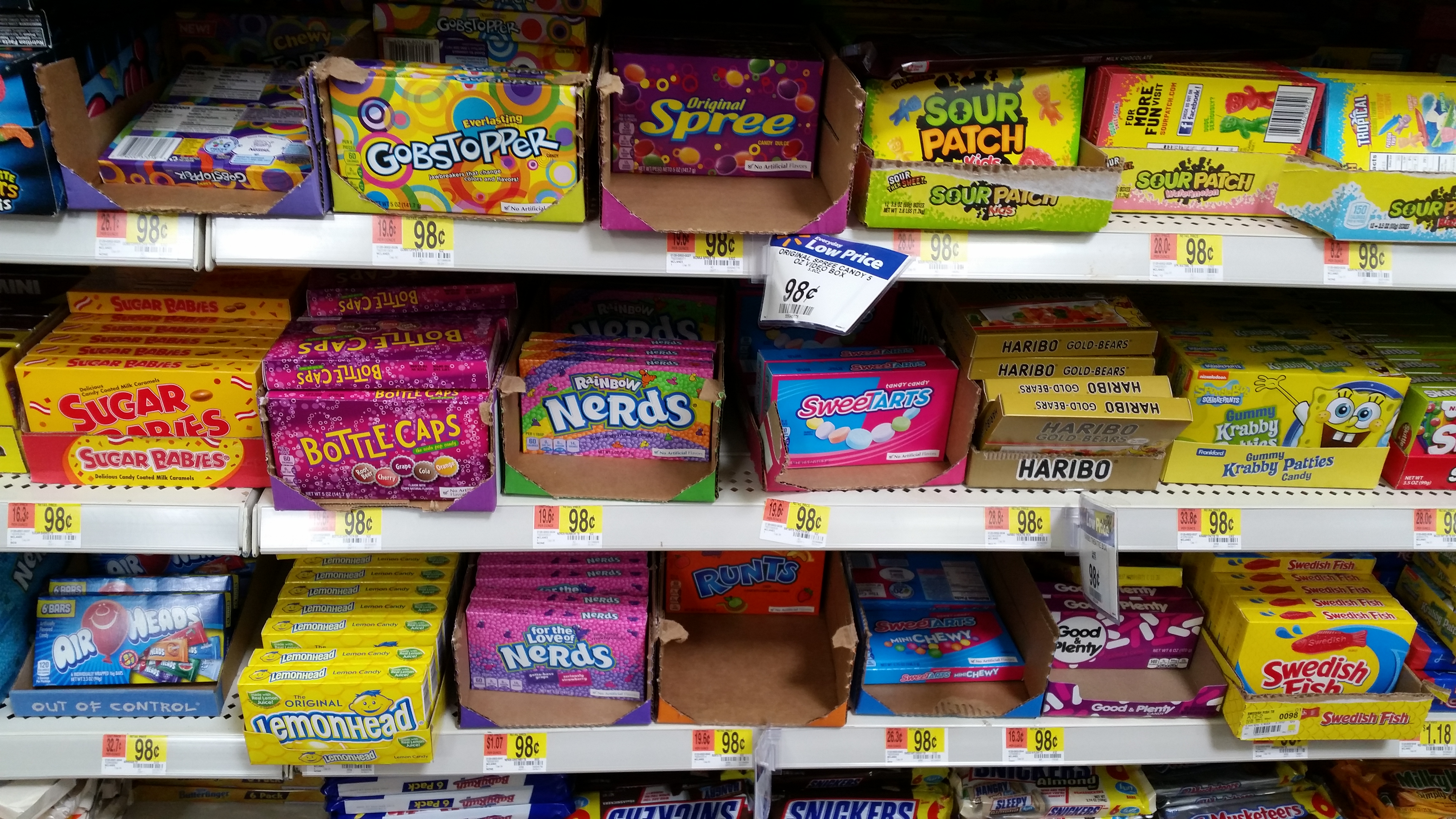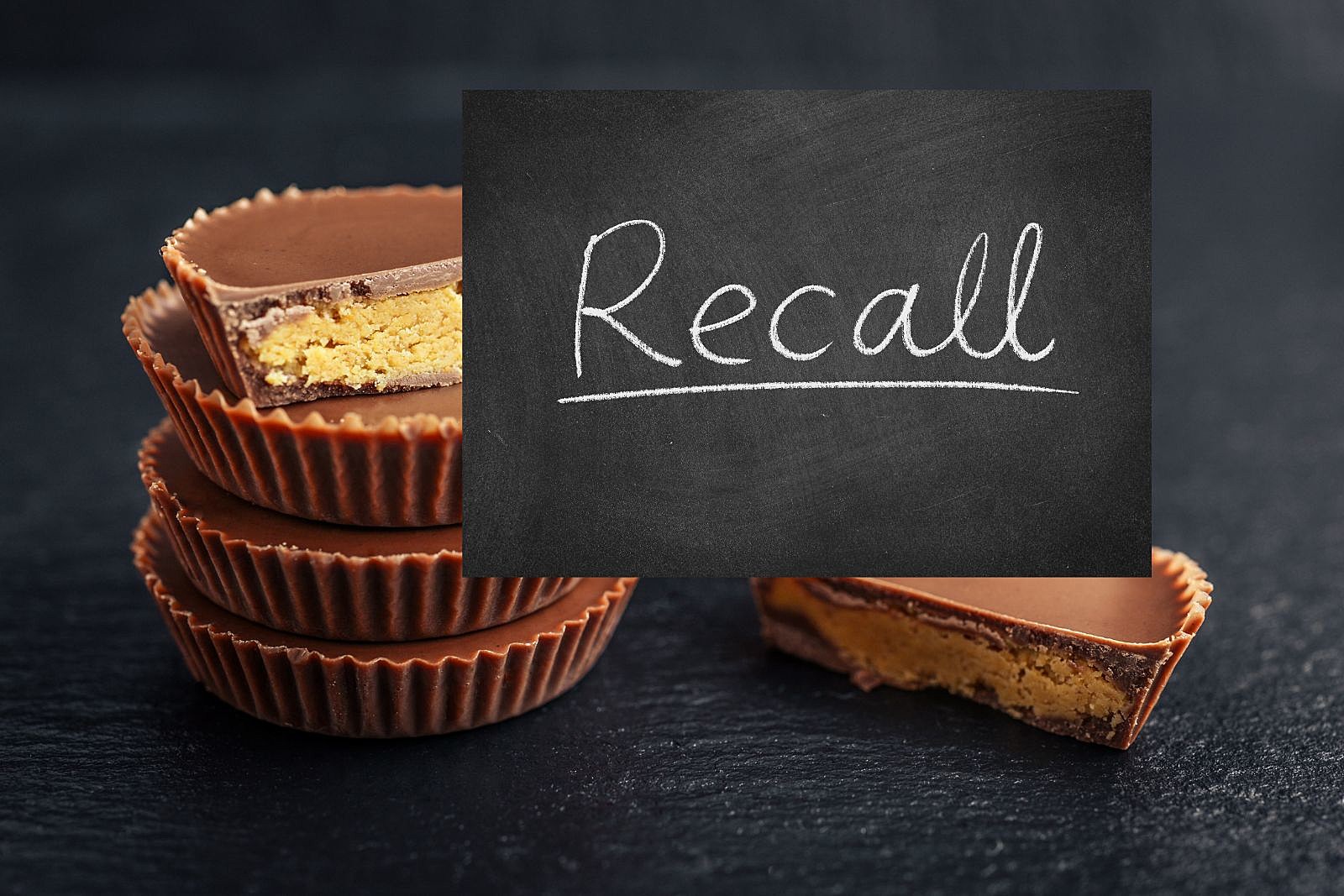Walmart’s Recall History: Walmart Recalls Candy

Walmart, as one of the largest retailers globally, has faced numerous product recalls over the years. While recalls are a necessary measure to ensure consumer safety, they can significantly impact a company’s reputation and customer trust. This section examines Walmart’s recent history of candy recalls, highlighting the reasons behind each recall and their potential impact on the company.
Candy Recalls in the Past Five Years
This section Artikels the significant candy recalls initiated by Walmart in the past five years, providing details about the reasons behind each recall, including product defects, contamination, or allergen concerns.
- In 2018, Walmart recalled a specific brand of chocolate due to the presence of undeclared milk ingredients, posing a potential health risk to consumers with dairy allergies. The recall was prompted by customer complaints and subsequent investigations, highlighting the importance of accurate labeling and ingredient disclosure. This recall impacted Walmart’s reputation, as it demonstrated a lapse in quality control and raised concerns about the safety of its products.
- In 2019, Walmart recalled a batch of gummy candies due to potential contamination with salmonella. This recall was initiated after a supplier reported a positive test result for salmonella in the affected batch. The recall emphasized the need for stringent safety protocols throughout the supply chain, from production to distribution. This recall could have negatively affected Walmart’s reputation, as it highlighted a potential food safety risk and raised concerns about the company’s ability to ensure the safety of its products.
- In 2020, Walmart recalled a popular brand of hard candy due to a potential choking hazard. This recall was initiated after reports of children choking on the candy, prompting Walmart to investigate and identify the potential hazard. This recall highlighted the importance of product safety, especially for products marketed to children. This recall could have impacted Walmart’s reputation, as it raised concerns about the safety of its products and its ability to ensure the safety of children.
- In 2021, Walmart recalled a batch of chocolate-covered pretzels due to the presence of undeclared peanuts, posing a risk to consumers with peanut allergies. This recall was initiated after a customer reported an allergic reaction after consuming the affected product. This recall emphasized the importance of accurate labeling and ingredient disclosure, especially for products containing common allergens. This recall could have negatively impacted Walmart’s reputation, as it demonstrated a lapse in quality control and raised concerns about the safety of its products.
- In 2022, Walmart recalled a specific type of gummy candy due to a potential choking hazard. This recall was initiated after several reports of children choking on the candy, prompting Walmart to investigate and identify the potential hazard. This recall highlighted the importance of product safety, especially for products marketed to children. This recall could have impacted Walmart’s reputation, as it raised concerns about the safety of its products and its ability to ensure the safety of children.
Impact of Recalls on Consumers

Product recalls, particularly those involving food items like candy, can have significant consequences for consumers. While the primary goal of a recall is to protect public health, the process can be disruptive and stressful for those affected.
Health Risks Associated with Consuming Recalled Candy
Consuming recalled candy can pose various health risks, depending on the specific reason for the recall. Some common risks include:
- Foodborne Illness: Recalled candy may be contaminated with bacteria, viruses, or parasites that can cause food poisoning. Symptoms can range from mild discomfort to severe illness, potentially requiring hospitalization.
- Allergic Reactions: Candy may contain undeclared allergens, such as nuts, dairy, or soy, which can trigger life-threatening allergic reactions in sensitive individuals.
- Choking Hazards: Some candies, especially those containing small pieces or hard textures, can pose a choking hazard, particularly for young children.
- Chemical Contamination: Candy may be contaminated with harmful chemicals, such as pesticides or heavy metals, that can lead to long-term health problems.
Returning Recalled Products and Receiving Refunds, Walmart recalls candy
The process for returning recalled products and receiving refunds varies depending on the retailer and the specific recall.
- Contacting the Retailer: Consumers should contact the retailer where they purchased the recalled candy to inquire about return procedures and refund options.
- Providing Proof of Purchase: Retailers may require proof of purchase, such as a receipt or credit card statement, to process refunds.
- Returning the Product: Consumers may need to return the recalled candy to the store or dispose of it according to the retailer’s instructions.
- Refund Methods: Refunds may be issued in the form of store credit, cash, or a credit to the original payment method.
Challenges Faced by Consumers
Consumers may face various challenges when dealing with product recalls, including:
- Access to Information: Consumers may not be aware of a recall, especially if they do not regularly check news sources or government websites.
- Time Constraints: Consumers may have limited time to return recalled products, especially if they are busy with work or other commitments.
- Lack of Clarity: Recall notices may not be clear or easy to understand, leading to confusion about what products are affected and what actions to take.
- Difficulty Contacting Retailers: Consumers may have trouble contacting the retailer to inquire about returns or refunds, especially if they purchased the product online or at a smaller store.
Walmart’s Response to Recalls

Walmart, as a global retail giant, has a significant responsibility to ensure the safety of its products and protect its customers. When faced with recalls, Walmart implements a comprehensive strategy to communicate with consumers, mitigate risks, and maintain customer trust.
Communication Strategy
Walmart utilizes a multi-pronged approach to communicate recall information to its customers. This includes:
- Press Releases: Walmart issues official press releases detailing the nature of the recall, affected products, and necessary actions for consumers. These releases are widely disseminated through news outlets and media platforms, ensuring broad reach.
- Social Media Updates: Walmart actively utilizes its social media platforms, such as Facebook, Twitter, and Instagram, to inform customers about recalls. This allows for real-time updates and direct engagement with consumers, addressing their questions and concerns.
- In-Store Announcements: Walmart posts signage in its stores, alerting customers about recalls. This includes prominently displayed posters near the affected products, providing clear instructions for returns and refunds.
- Website Updates: Walmart maintains a dedicated section on its website for recall information, providing comprehensive details about each recall, including product descriptions, images, and FAQs.
- Customer Service: Walmart’s customer service representatives are trained to handle inquiries related to recalls, providing guidance and assistance to customers. They are equipped with up-to-date information and resources to address any concerns.
Ensuring Product Safety
Walmart is committed to product safety and implements various measures to prevent future recalls. These include:
- Supplier Audits: Walmart conducts regular audits of its suppliers, assessing their manufacturing processes, quality control measures, and compliance with safety standards. This helps identify potential risks and ensure adherence to best practices.
- Product Testing: Walmart conducts rigorous product testing before introducing new products to its shelves. This involves evaluating product safety, durability, and performance to minimize the likelihood of recalls.
- Collaboration with Regulatory Agencies: Walmart actively collaborates with regulatory agencies like the Food and Drug Administration (FDA) and the Consumer Product Safety Commission (CPSC) to stay informed about safety standards and potential hazards. This collaboration helps Walmart proactively address safety concerns and implement preventive measures.
- Internal Monitoring: Walmart has an internal system for monitoring product safety, tracking customer complaints, and identifying potential issues. This allows for early detection and swift action to prevent widespread problems.
Responding to Consumer Concerns
Walmart recognizes the importance of addressing consumer concerns and complaints related to recalls. The company actively listens to customer feedback and takes steps to resolve issues promptly and fairly. This includes:
- Providing Refunds: Walmart offers full refunds for recalled products, ensuring that customers are not financially impacted by the recall. They also provide clear instructions on how to return the products and receive refunds.
- Addressing Concerns: Walmart’s customer service representatives are trained to handle complaints and concerns related to recalls. They are equipped to provide accurate information, address specific issues, and offer solutions to ensure customer satisfaction.
- Transparency and Accountability: Walmart strives to be transparent in its recall process, providing clear and concise information to consumers. The company takes responsibility for its products and works diligently to address any safety issues that arise.
